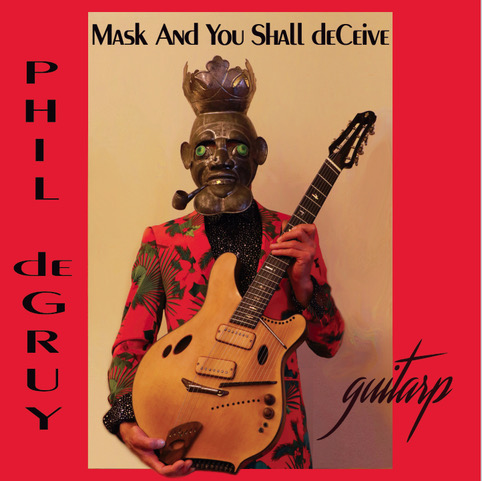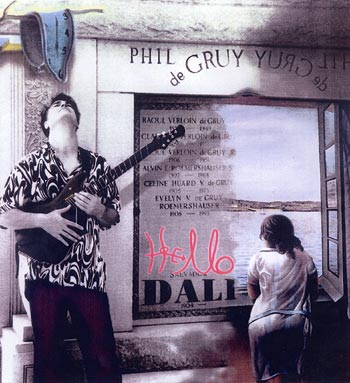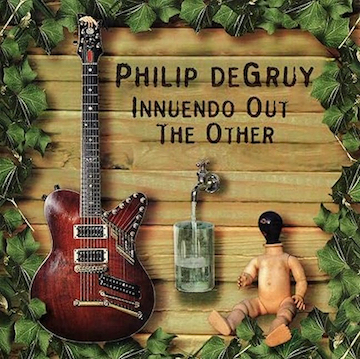
Offbeat Magazine Interview/Playing, 2019:

Recorded from the end of last century and into this one, released in early 2004, Just Duet features duets with notable guitarists, in eluding Larry Coryell, Charlie Hunter, Mike Stern and more, featuring my first “fanned-fret” Guitarp, made by Luthier Ralph Novak, who was introduced to me by Charlie Hunter
All-Music Guide Review
Phil deGruy
Just Duet

Recorded in 2000 by Jim Augustin at The Noise Lab, New Orleans, featuring my first “fanned-fretted” Guitarp, made by Luthier Ralph Novak circa ‘98

My first record with my first Guitarp, made by Jimmy Foster in 1983, released in 1995 on NYC Records
This unusual outing sent me reaching for records not by Lenny Breau and Chet Atkins — deGruy’s stated departure points, whose influence is certainly audible in his approach — but by earlier generations of guitar hotshots, such as Roy Smeck, George Van Eps, Carl Kress and Dick McDonough. Before guitar was a widely accepted tool for jazz expression, these freakish fretsmen used a combination of technical wizardry and vaudevillian zaniness to captivate listeners. That same combination is what makes deGruy more than merely a dazzling player, which he undoubtedly is.
First, there’s the instrument: called the “guitarp,” it augments a (hardly) standard seven-string guitar (an innovation introduced in 1939 by Van Eps, who commissioned Epiphone to make him one) with an additional 10 harp strings. DeGruy’s loose-nutted sense of humor leads him to string together unthinkable runs of quotations on this monster machine; listen for snatches of Neil Young and the theme to M*A*S*H in the middle of his live crossfade between A.C. Jobim’s “Wave” and “When The Saints Go Marchin’ In.” And his choice of basic material is far beyond the pale of Joe Pass — he cover’s Coltrane’s “Naima” and Bill Evans’ “My Bells,” showtunes like “If I Only Had A Brain” and “They Can’t Take That Away From Me,” pop numbers like “My Girl” and “Blackbird,” and Claude Debussy’s “Claire De Lune.” All these are treated to the same finger-picked stream-of-consciousness free-flow, with the added strings serving coloristic and heightened emotional ends.
Though deGruy often leans toward more impressionistic harmonic territory — brushing the harp strings in a swift stroke — he’s apt to toss in a bluesy lick (check his own, short title tune and his zoned-out “Blues For Rod Sterling”) or run a bass line underneath high arpeggios and linear runs in a stunning way. While the humor on Innuendo Out The Other never slips over the line into simple silliness, it comes perilously close in a couple of places. But deGruy’s musicianship seems to be at the service of a quick and inventive enough mind to keep it from turning into a curiosity or novelty item.
— John Corbett, Down Beat, May 1995